Today I am going to talk about Foreshadowing your Mystery. Just in case some of my non-writing readers are following my posts this week, when I say “Foreshadowing” I am not talking about a shadow. I.e. The one Peter Pan loses and chases around Wendy’s bedroom. I am talking about laying the groundwork for surprises, for the big reveals, for the shock “I did NOT see that coming” moment we all love in a good story.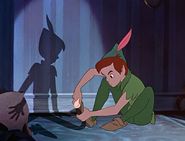 Yes, we want to be surprised…but, let’s face it, we like to know it’s coming, and when it arrives, we NEED to know that it makes sense. Back to my authors, this post can be applied to any story in any genre, whether you are writing that timeless Detective mystery, a romantic thriller, suspense, a fantasy or science fiction story with a mystery weaved throughout…every story, every one that is well-told, will have foreshadowing.
Yes, we want to be surprised…but, let’s face it, we like to know it’s coming, and when it arrives, we NEED to know that it makes sense. Back to my authors, this post can be applied to any story in any genre, whether you are writing that timeless Detective mystery, a romantic thriller, suspense, a fantasy or science fiction story with a mystery weaved throughout…every story, every one that is well-told, will have foreshadowing.
First, let’s talk about some of the best surprises in literature. Whenever I think of a POW moment in fiction, I almost always think of The Hunger Games. That moment when Peeta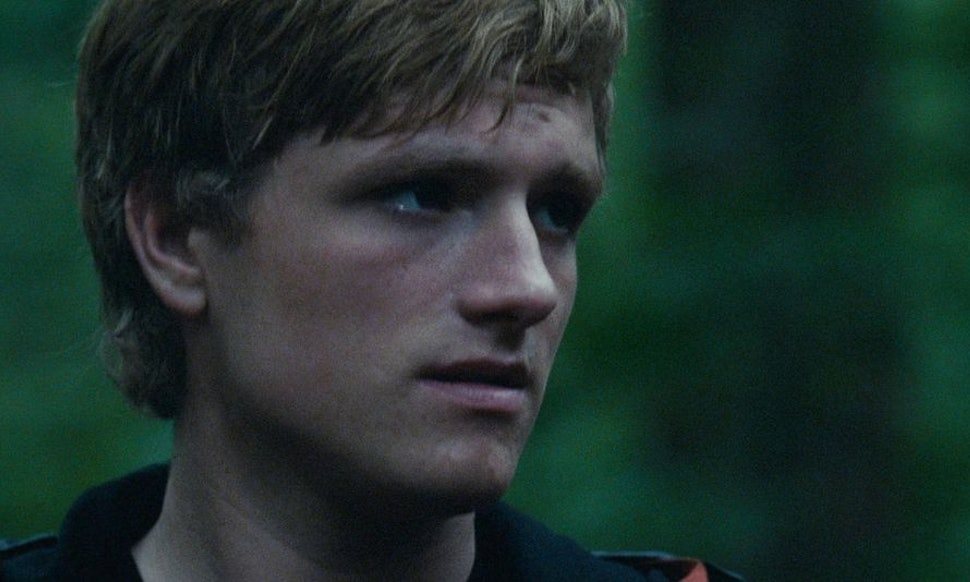 says that Katniss is pregnant? Even though I know it’s coming because I’ve read the book before…I still LOVE that moment. I’m totally surprised, because Katniss is totally surprised. She wasn’t let in on the secret. However, the play makes sense because the author had previously established that Peeta has a way with words and people. You believe this amazing twist of Peeta’s because the author FORESHADOWED that he has the gift for surprise moments like this. Every time he opens his mouth, you feel like grinning because you know what he is capable of. Peeta isn’t just the baker’s homely, quiet son who’s going to try to kill his opponents with big sacks of flour. And the author gives us glimpses of this as she spins her tale and develops his character.
says that Katniss is pregnant? Even though I know it’s coming because I’ve read the book before…I still LOVE that moment. I’m totally surprised, because Katniss is totally surprised. She wasn’t let in on the secret. However, the play makes sense because the author had previously established that Peeta has a way with words and people. You believe this amazing twist of Peeta’s because the author FORESHADOWED that he has the gift for surprise moments like this. Every time he opens his mouth, you feel like grinning because you know what he is capable of. Peeta isn’t just the baker’s homely, quiet son who’s going to try to kill his opponents with big sacks of flour. And the author gives us glimpses of this as she spins her tale and develops his character.
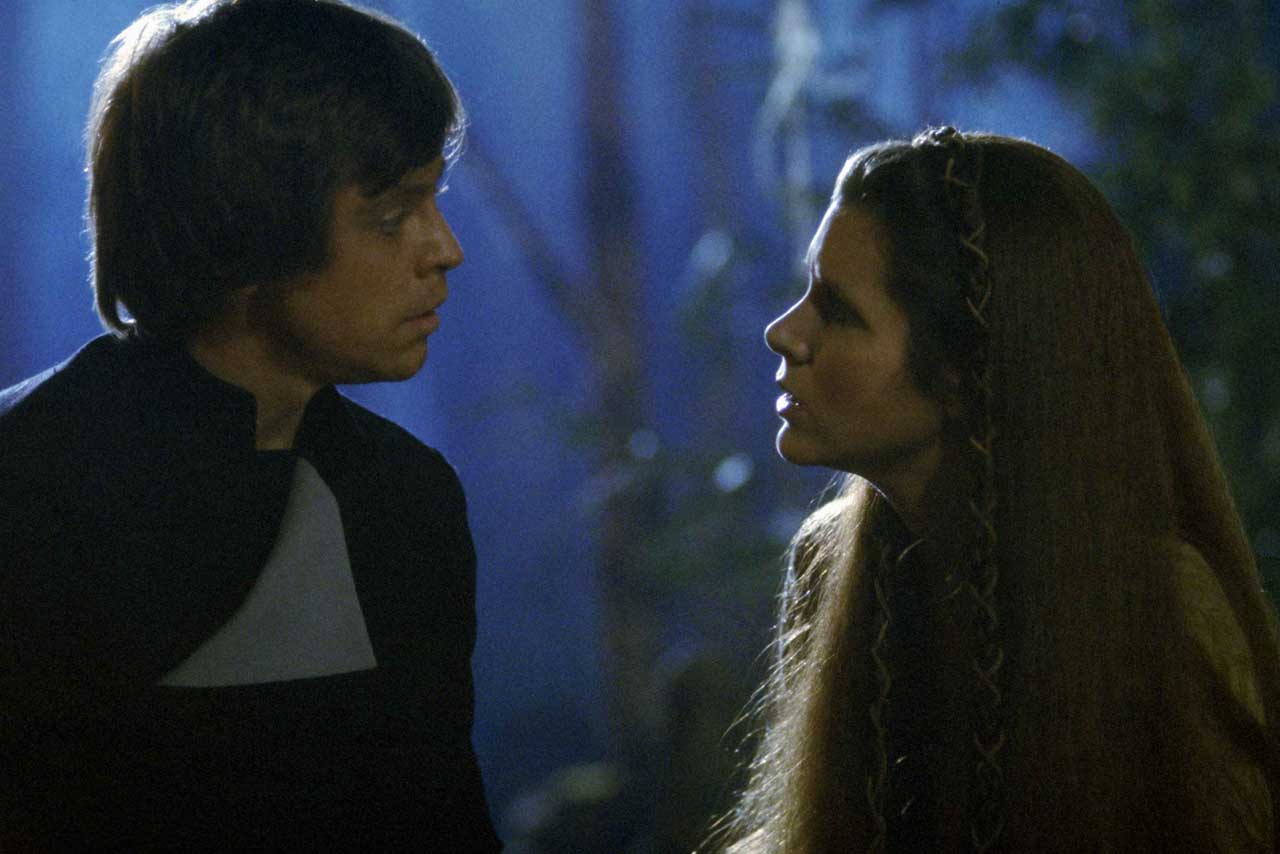 For my fellow geeks, another big reveal I’ve always loved in fiction is when we find out that Leia and Luke are siblings. (Let’s not get into the whole, I kissed my brother thing, because that’s just gross). When you get to that moment, you’re like: That makes so much sense! I believe this! The reason for this is because George Lucas knew this plot twist when he began writing the story and he PREPARED us for the revelation.
For my fellow geeks, another big reveal I’ve always loved in fiction is when we find out that Leia and Luke are siblings. (Let’s not get into the whole, I kissed my brother thing, because that’s just gross). When you get to that moment, you’re like: That makes so much sense! I believe this! The reason for this is because George Lucas knew this plot twist when he began writing the story and he PREPARED us for the revelation.
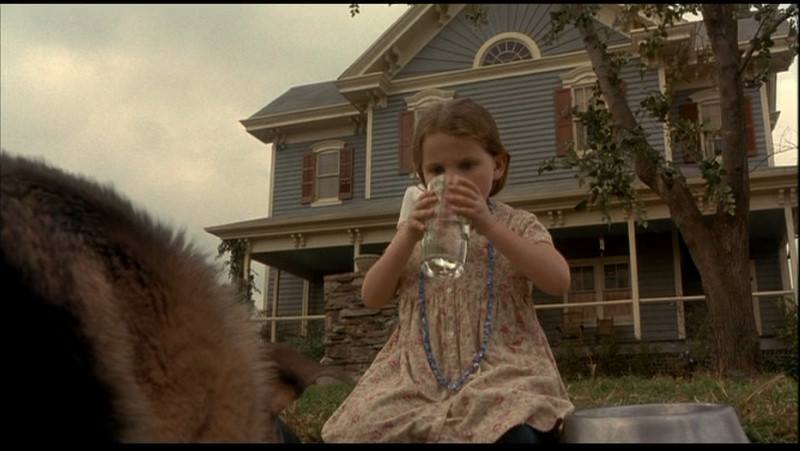 One of my favorite screen writers is M. Knight Shyamalan. He has such an amazing gift for suspense, and the way he foreshadows the stories he is trying to tell…truly, it’s brilliant. My two favorites are The Village and Signs. Have you ever sat down and watched Signs for the pure pleasure of tearing it apart? From the moment Dad sits up in bed because he heard something outside, to the rumors being spread around town, to the last moment when he and his brother look across his living room and see all the glasses Bo has left around that he can use to defeat the alien that’s about to kill Morgan…who survives because of the asthma that was clearly threaded into the story…it’s brilliantly done. Every step is planned, every twist is prepared for. If you’ve never seen this movie, you seriously need to.
One of my favorite screen writers is M. Knight Shyamalan. He has such an amazing gift for suspense, and the way he foreshadows the stories he is trying to tell…truly, it’s brilliant. My two favorites are The Village and Signs. Have you ever sat down and watched Signs for the pure pleasure of tearing it apart? From the moment Dad sits up in bed because he heard something outside, to the rumors being spread around town, to the last moment when he and his brother look across his living room and see all the glasses Bo has left around that he can use to defeat the alien that’s about to kill Morgan…who survives because of the asthma that was clearly threaded into the story…it’s brilliantly done. Every step is planned, every twist is prepared for. If you’ve never seen this movie, you seriously need to.
The most important thing to remember as you are making your big reveals is that you need to prepare for them. Leave bread crumbs. Don’t spoil the surprise, but use the other resources you have at your disposal to prepare us for the shock.
- Use your character development, like we talked about with Peeta. When your characters do something shocking, we should already see the signs that they are capable of doing the shocking thing. Don’t give us a sweet heroine who never raises her voice above a whisper who suddenly faces an angry mob and shouts them into submission. Because…eh…we won’t buy it. We need to see her losing her temper with her pesky brother earlier in the story. We need to see her saying something quiet but sarcastic to her slightly annoying love interest. We need to see her quietly standing up for a friend in need. Then, by the time we get to the climax where she has to put herself out there and quiets an enraged mob…we will BELIEVE it.
- Use your setting and descriptions to set the tone. It’s totally fine to shock us, but set the stage with appropriate descriptions. Let us know the night is quiet and still but in an eerie sort of way, so when the assassin melds out of the shadows we already
 believe he could be there because you told us something wasn’t right when you described the setting. Here is a snippet from a favorite book of mine, So Sang the Dawn. From the moment I read these first lines…I knew what kind of a story I was getting into–I could feel the tension and the drama…and the lion plays a huge part in the story. But Miss Pavese doesn’t just throw a giant lion at us in the middle of the action sequence. No, she begins from the very first word of the story. Literally.
believe he could be there because you told us something wasn’t right when you described the setting. Here is a snippet from a favorite book of mine, So Sang the Dawn. From the moment I read these first lines…I knew what kind of a story I was getting into–I could feel the tension and the drama…and the lion plays a huge part in the story. But Miss Pavese doesn’t just throw a giant lion at us in the middle of the action sequence. No, she begins from the very first word of the story. Literally.
“A lion.
A massive lion, as tall as a house…Its fur was as black as the surrounding night itself, swallowing any light that dared to reach out and touch it.”
So Sang the Dawn by AnnMarie Pavese
3. Plan ahead of time. I’m a terrible panster who has had to learn the necessity of plotting. If you know ahead of time where you are going, it is so much easier to plan for it. You already KNOW what you have to foreshadow, what kind of clues you need to lay out for your readers, and even where you need to put them. It’s easier to plan and then remove later than to get to the end, realize you have a problem, and then try to figure out a way to fix it.
I could say a lot more on the subject, but time is running short. To summarize: Know where you are going and plan how you mean to get there. Use the resources you already have in place–your characters, your setting, your dialogue, your mood and tone–and don’t forget to leave us those bread crumbs.
Your readers will be thankful you did.

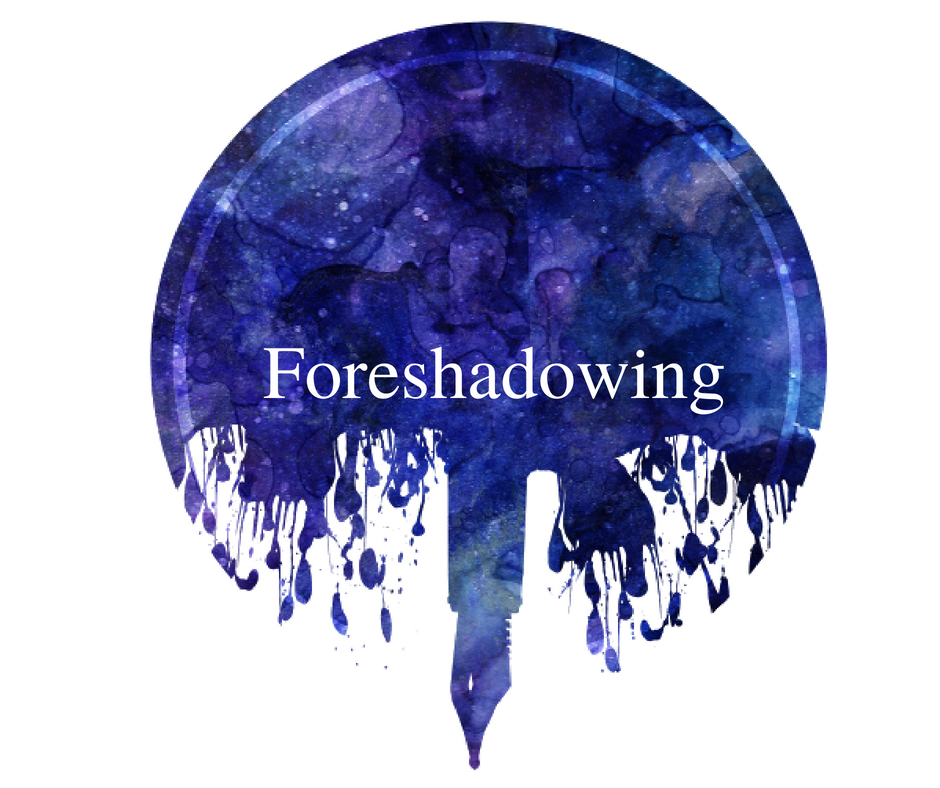
Great post! Thanks for the helpful tips!